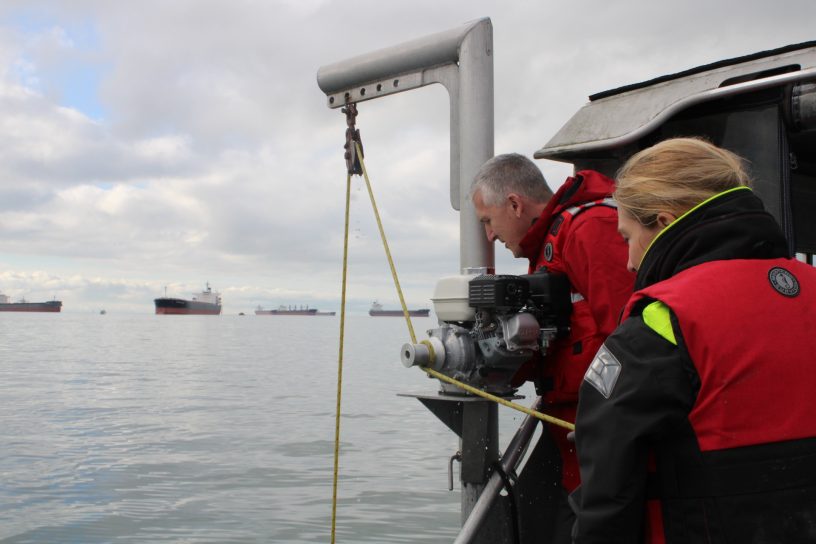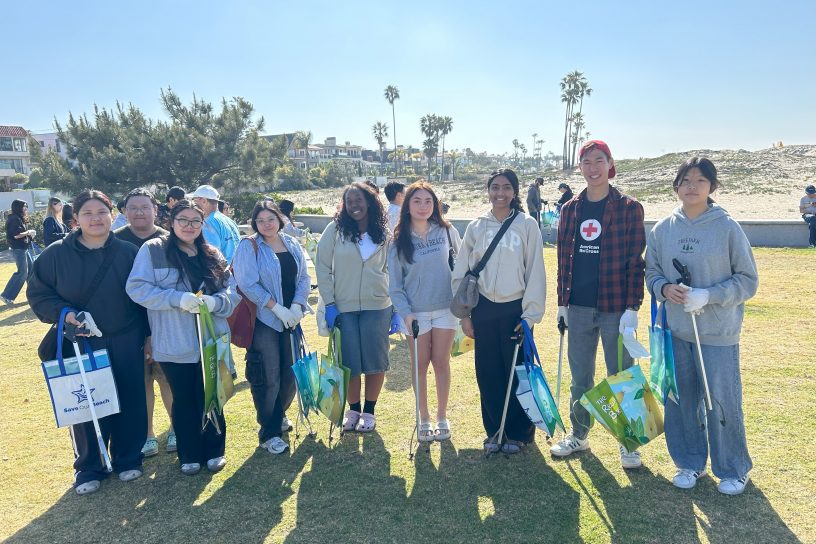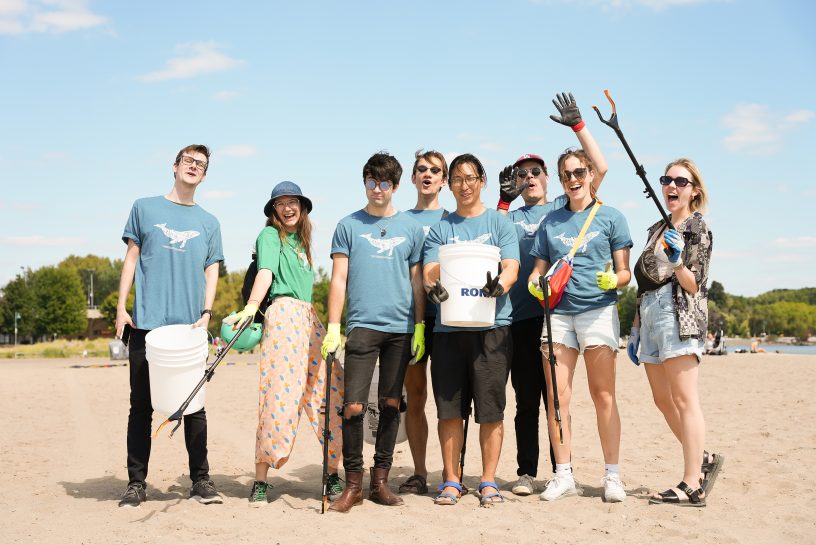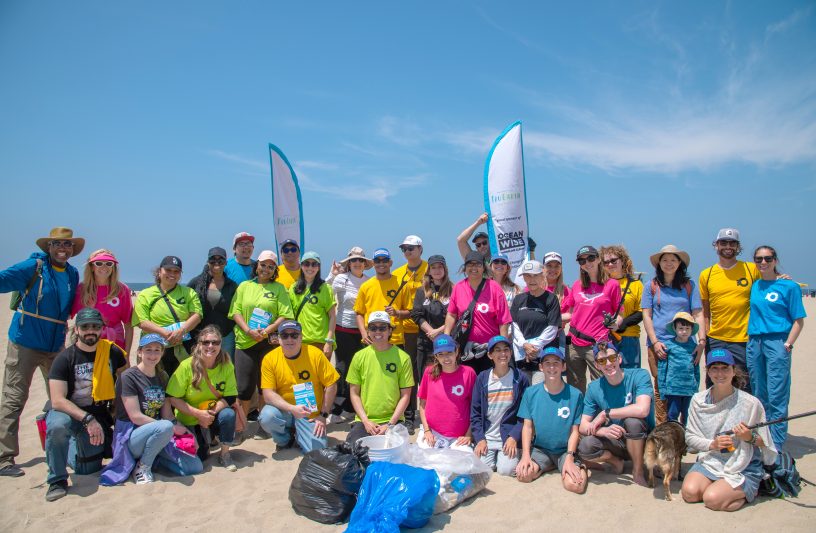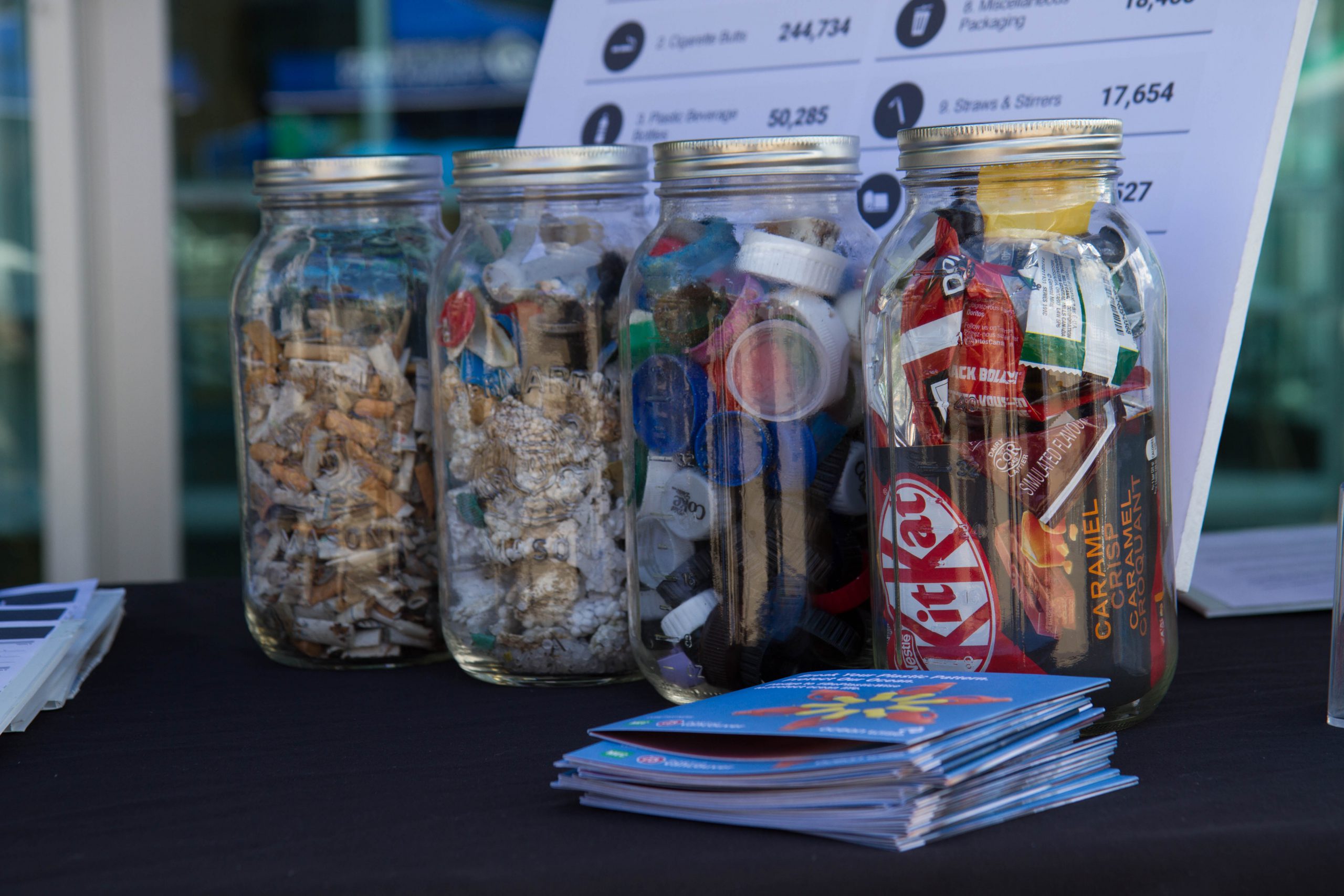
“Ditching” the Dirty Dozen
Each year, citizen science data collected by the Ocean Wise Shoreline Cleanup reveal the “Dirty Dozen,” a list of the most-found litter across Canada.
We wanted to share some suggestions of actions you can take to prevent the Dirty Dozen from appearing on our shorelines, with a focus on the reduction of single-use food and beverage items. The best way to keep shorelines clean is to prevent litter from getting there in the first place.
So here we go: Let’s “ditch” our use of the Dirty Dozen.
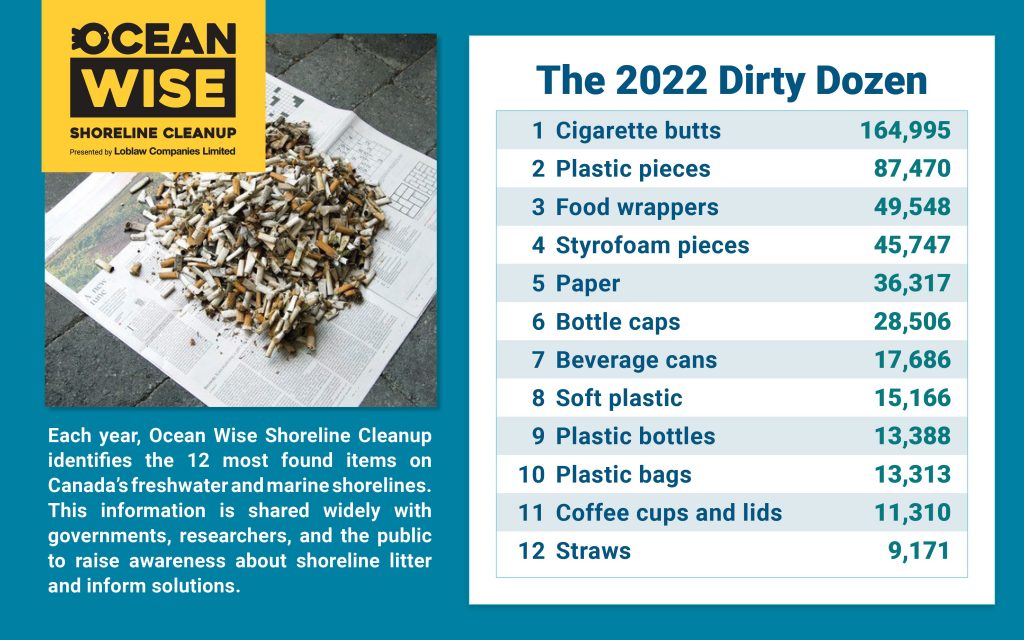
1. Cigarette butts – 164,995
The problem: Cigarettes can leach toxic chemicals, such as lead and arsenic, into the environment, contaminating water and harming animals.
Prevention: Put them out and put them in the garbage can, never on the ground. Or ship them to TerraCycle.
2. Plastic pieces – 87,470
The problem: Pieces of plastic and foam break up into smaller fragments known as microplastics. These tiny pieces of litter are then eaten by zooplankton (the smallest animals in the food chain) and may even be transferred up the food chain.
Prevention: Reduce your overall use of plastics. Choose a head of lettuce rather than plastic wrapped lettuce, choose a shampoo bar rather than shampoo in a bottle, and support restaurants that use reusable or recyclable containers. If they exist in your community, support businesses that let you refill, whether its products for your kitchen, your bathroom or even your morning coffee. Don’t let your efforts go to waste, be sure to sort your waste properly- see instructions for your municipality!
3. Food wrappers – 49,548
The problem: Unfortunately, a lot of snacks and food sold in grocery stores come in plastic and foil packaging. Light packaging can easily get blown or washed out of waste systems, entering waterways through run off and inland rivers.
Prevention: Make your own snacks. Buy in bulk, save money, and reduce wrappers on our shorelines. Choose treats that come in reusable, recyclable or compostable packaging. Bring your own jars to fill up on bulk items!
4. Styrofoam pieces – 45,747
The problem: Foam can wash up on shorelines from boating and recreational activities. Larger pieces get weathered and will crumble when you pick them up, leading to even more tiny bits of foam.
Prevention: Ask your local marina to switch to encased foam floats, which extend the life of the floats and end the breakdown of foam nodules!
5. Paper – 36,317
The problem: When paper becomes litter, it does not get recycled into a new paper product and ink printed on everyday paper items can be harmful to flora and fauna.
Prevention: Go digital and avoid printing unless you need to! Donate or sell used books, and sort and recycle paper following your municipality’s instructions.
6. Bottle caps – 28,506
The problem: Bottle caps tend to make their way into our waterways and shorelines, where they never really disappear. Marine mammals, fish and birds see bottle caps as food, leading to fatal repercussions, if ingested.
Prevention: Drink out of a reusable bottle and make sure to properly recycle your bottle caps.
7. Beverage cans – 17,686
The problem: Beverage cans are often left behind following coastal recreation like picnics, concerts, and swimming.
Prevention: Did you know that, if recycled, the aluminum in beverage cans can be melted down and reused? Beverage cans are recyclable in most municipalities, please sort your recycling as directed by your municipality and remember the “leave no trace” principles when using public areas.
8. Soft plastic – 15,166
The problem: Many of these items, such as plastic wraps, food storage bags and bubble wrap are found in packaging materials. In many municipalities, these cannot be recycled.
Prevention: Try to purchase items locally rather than having items shipped to your door to reduce the amount of packaging required. Consider different methods of storing items and food (like reusable jars) rather than plastic food storage bags, and choose fruits and vegetables that aren’t wrapped in plastic at the grocery store wherever possible.
9. Plastic bottles – 13,388
The problem: Although convenient, discarded plastic bottles eventually break into smaller pieces that can be ingested by animals and enter the food chain. Each bottle can take up to 1,000 years to decompose, leaking harmful chemicals into our environment along the way.
Prevention: Bring your reusable bottle. For soft drinks, grab a can and then make sure to sort and recycle following your municipality’s instructions.
10. Plastic bags – 13,313
The problem: Plastic bags can easily be mistaken as food by animals in all waterways. They resemble jelly fish, salps and ctenophora, and marine animals cannot tell the difference.
Prevention: Bring your own reusable bags.
11. Coffee cups and lids – 11,310
The problem: While coffee cups seem like they will break down easily, most don’t. Many contain a plastic polyethylene layer and aren’t easily biodegradable.
Prevention: Reusable mugs are the best option! Buy coffee and tea in bulk and make your latte at home. Or sit and enjoy your hot beverage at your local coffee shop rather than taking it to go.
12. Straws – 9,171
The problem: Straws are redundant for a lot of the population and are very difficult to recycle due to their light weight. While some humans need straws, marine life does not.
Prevention: Plastic straws may be necessary for some people. If that is not the case for you, try silicone, metal or bamboo straws which can now easily be found in many stores and online!
Are there items on this list you use in your daily life that you could replace with a more sustainable alternative, or ditch the use of altogether? Not sure where to start? Why not take a look at our plastic tips for inspiration to make everyday plastic swaps.
As we move forward, continued action will be paramount to reduce the amount of litter collecting on our shorelines and in our waterways. In addition to taking action to reduce personal contributions to shoreline litter, everyone is encouraged to help keep our shorelines healthy by leading or joining a shoreline cleanup. Register today at ocean.org.
Visit here for more information on plastic reduction.
In addition to cleaning our shorelines and connecting people with nature, the Ocean Wise Shoreline Cleanup program collects powerful data that helps address waste at its source. By joining us in your community you can make a difference close to home and around the globe.
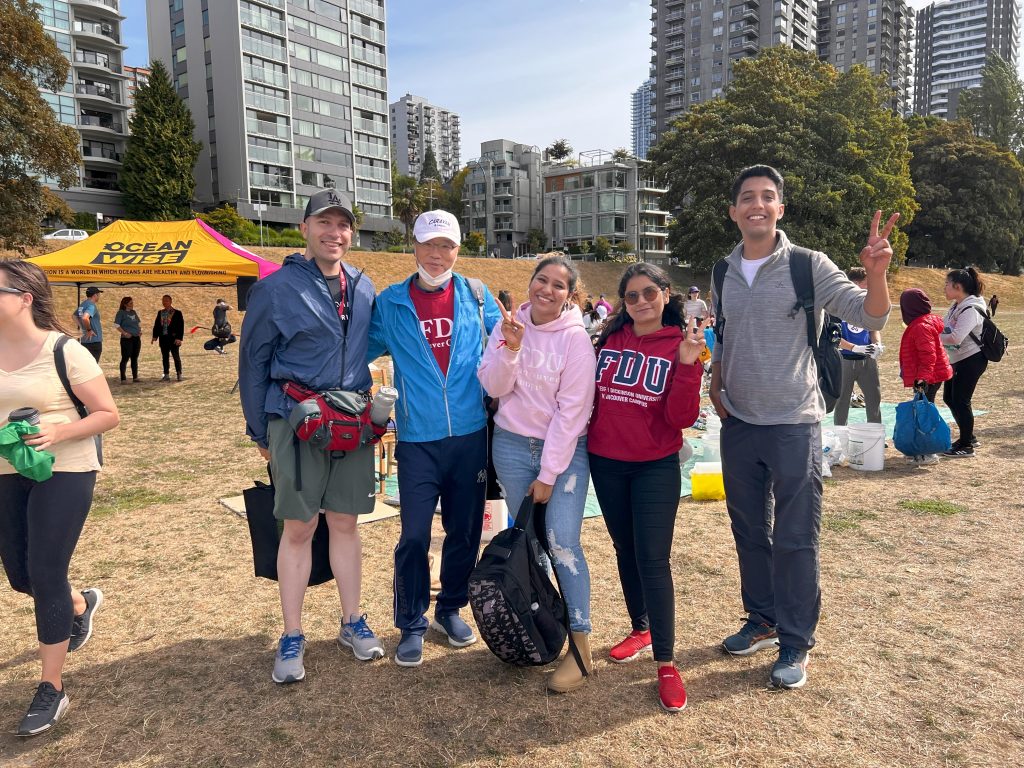
Posted September 12, 2023 by Public Relations
